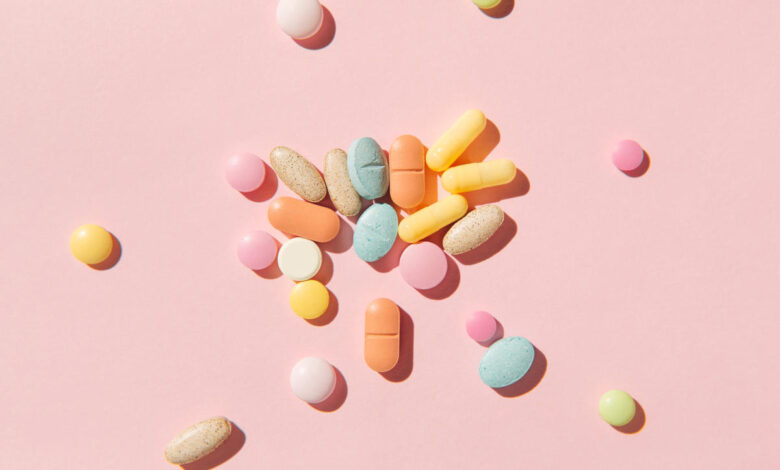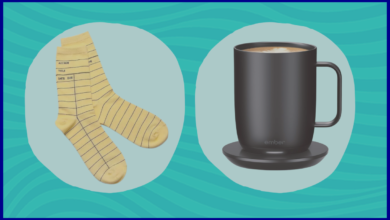Are You Taking Pills Incorrectly? Experts Reveal the Best Positions, Empty Stomach Myths, and More.

Ah, the ubiquitous world of medication—where headaches find solace in ibuprofen, hearts find their guardian in aspirin—and antibiotics wage war on unwelcome infections. Yet, do we delve into the perplexing art of pill consumption with the correct finesse? Why do certain tablets elicit a wave of nausea, while others seem to belabor the act of swallowing? Is there, perchance, a perfected method to usher them down our gullets?
It appears that a multitude of patients err in their pill-popping practices. In this enlightening discourse, medical savants unravel the tangled webs of confusion, offering insights into pill ingestion with optimal efficacy.
Why do some individuals grapple with swallowing pills?
When one struggles through the arduous journey of pill swallowing, feelings of inadequacy may arise. Yet, noted Jennifer Bourgeois, a connoisseur of health at SingleCare, a health virtuoso and pharmacist, elucidates that this vexing struggle, colloquially termed “pill dysphagia,” may blossom from various roots.
“Some people possess a petite esophagus, a trait that complicates the act of swallowing,” reveals Bourgeois, adding that previous surgeries or esophageal strictures could exacerbate issues. An overly sensitive gag reflex along with saliva production that is meager—culpable for its many drenched roots in conditions like Sjorgen’s Syndrome—renders swallowing an uphill battle.
As Healthline notes, psychogenic barriers such as anxiety or the looming dread of choking may obstruct the passage of medication. Though gnawing on pills is generally frowned upon, alternative tactics like the pop-bottle technique or a dalliance with small candies like M&Ms, or even a luscious coating of yogurt or honey, might be fruitful.
Must you always take your pills with water?
The sage advice from our connoisseurs is to eschew the “dry” approach or depending merely on saliva.
“Incorporating fluids not only smooths the descent of pills but also mitigates the irritation of your throat or esophagus. Beneath the surface, these liquids aid in disintegrating the pills to secure maximum absorption,” articulates HaVy Ngo-Hamilton, a pharmacist and clinical consultant at BuzzRx.
Bourgeois proposes a robust 4 ounces of water to usher the pill into the abyss of the stomach, remarking that “a hearty gulp triumphs in carrying the medication down the esophagus, while timid sips may lack the necessary force.”
Experts crown water as the supreme elixir for pill consumption, as it poses no hurdles to absorption.
“Certain concoctions, such as fruit juices and dairy, can thwart absorption,” she warns, elucidating that milk and yogurt may undermine the potency of select antibiotics, while a splash of grapefruit juice may amplify the side effects of certain statins geared toward managing cholesterol.
Additionally, Bourgeois advises steering clear of carbonated beverages that might hasten pill dissolution prematurely, while caffeinated options could meddle with drug metabolism, and—let’s not even mention—alcohol, which could spell disaster.
Yet, for those battling the tyrannies of pill swallowing, a touch of non-acidic carbonate beverages like seltzer can apply a welcome pressure to nudge pills down.
Is popping multiple pills a-okay?
Experts serenely declare that as long as you’re gliding along without impediments, taking several pills at once is typically benign.
“Consuming pills in quick succession is often permissible, but vigilance is key,” advises Bourgeois. “Ensure each pill has made its rise and fall before introducing the next one to avert the risk of choking.”
Yet, one must be vigilant: some medications mandate spacing; hence consultation with a healthcare practitioner to decipher the ideal intervals is prudent.
Is the food alliance essential for pill consumption?
It’s paramount to methodically scrutinize the directives appended to medications alongside your prescriber’s wisdom. Certain pharmacological agents flourish with a meal, while others—including those pesky thyroid medications—thrive best sans food, states Ngo-Hamilton. She highlights that such recommendations stabilize absorption and efficacy.
Moreover, what adorns your plate if food is a necessary companion can sway absorption. “Certain culinary companions can hinder the pharmacokinetics of medication, diminishing its effectiveness,” warns Ngo-Hamilton.
Specifically, fatty sustenance and fiber-rich edibles delay absorption, while greens, fermented delights, dairy, and acidic fruits or beverages could further muddle the mechanisms of action.
Moreover, timing is pivotal: “Generally, taking the pill amidst a meal or promptly afterward can remedy gastrointestinal mayhem and better absorption,” adds Bourgeois.
What’s the optimal posture for pill swallowing?
Curiously, tilting your head backward in defiance may be counterintuitive; research champions the contrary.
“Leaning back could paradoxically hinder your endeavor to swallow—especially with liquids, as it may induce the pill’s retreat,” warns Ngo-Hamilton. “Rather, a genteel forward tilt when swallowing paves the way for esophageal passage.”
Research emanating from Johns Hopkins University emphasizes that your posture wields influence as well. Lying down to the right post-ingestion may hasten absorption by approximately 13 minutes while tilting left significantly decelerates the process. However, for specific medications, maintaining a buoyant upright position is advisable to preempt irritation or gastrointestinal distress; one must adhere to pharmacy instructions religiously.
The trifecta: aspirin, ibuprofen, and acetaminophen?
As a headache looms—ready to emerge from the shadows—or nagging back pains beg to be quelled, ensure you’re selecting the right remedy for the mission at hand.
“These three contenders—ibuprofen, acetaminophen, and aspirin—while often mistaken for twins, diverge in their constituent elements and intended purposes,” asserts Dr. Brynna Connor, a family medicine physician and Healthcare Ambassador at NorthWestPharmacy.com, noting numerous individuals resort to aspirin “in low doses to help reduce the risk of heart attack or stroke.”
Dr. Connor elucidates that individual preferences might sway your choice of pain relief, influenced by one’s health dossier and medication tolerability. Those who lack the ability to withstand NSAIDs might favor acetaminophen instead—though it pales in efficacy against inflammatory woes like arthritis or menstrual cramps, for instance.
Dosing advisories vary across these medications, warranting cautiousness before impulsively downing a duo of pills without confirming milligram content and establishing daily caps. Ngo-Hamilton cautions against underestimating the perilous repercussions of over-the-counter (OTC) medications, underscoring the necessity to adhere stringently to package guidelines. Bourgeois amplifies this caution when juggling multiple medications.
“For instance, cocktailing a cold remedy festooned with acetaminophen alongside standalone acetaminophen can invite an overdose, a dire fate for the liver,” Bourgeois cautions. Additionally, prescription drugs can clash unfavorably with OTC concoctions, potentially diminishing effectiveness or precipitating adverse effects. “Prior to embarking on any OTC escapade, one ought to engage in dialogue with a pharmacist or healthcare provider to sidestep interaction pitfalls,” she insists.
Finally, a parting pearl of wisdom: given their capacity to agitate the stomach lining, possibly courting gastritis or ulcers, the dynamic duo of ibuprofen and aspirin ought to be paired with (preferably mild) sustenance, or milk (quite alright if dairy isn’t your jam). “Acetaminophen, however, is least likely to stir stomach discontent and is thus deemed suitable for empty stomachs,” concludes Connor.
Noteworthy: this article features affiliate links; a click upon them leading to a purchase may yield us a commission.




